20 start with S start with S
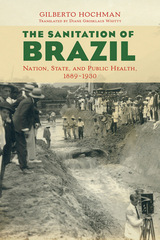
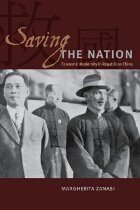
Economic modernity is so closely associated with nationhood that it is impossible to imagine a modern state without an equally modern economy. Even so, most people would have difficulty defining a modern economy and its connection to nationhood. In Saving the Nation, Margherita Zanasi explores this connection by examining the first nation-building attempt in China after the fall of the empire in 1911.
Challenging the assumption that nations are products of technological and socioeconomic forces, Zanasi argues that it was notions of what constituted a modern nation that led the Nationalist nation-builders to shape China’s institutions and economy. In their reform effort, they confronted several questions: What characterized a modern economy? What role would a modern economy play in the overall nation-building effort? And how could China pursue economic modernization while maintaining its distinctive identity? Zanasi expertly shows how these questions were negotiated and contested within the Nationalist Party. Silenced in the Mao years, these dilemmas are reemerging today as a new leadership once again redefines the economic foundation of the nation.

Jennifer Rycenga recovers a pioneering example of antiracism and Black-white cooperation. At once an inspirational and cautionary tale, Canterbury Academy succeeded thanks to far-reaching networks, alliances, and activism that placed it within Black, women’s, and abolitionist history. Rycenga focuses on the people like Sarah Harris, the Academy’s first Black student; Maria Davis, Crandall’s Black housekeeper and her early connection to the embryonic abolitionist movement; and Crandall herself. Telling their stories, she highlights the agency of Black and white women within the currents, and as a force changing those currents, in nineteenth-century America.
Insightful and provocative, Schooling the Nation tells the forgotten story of remarkable women and a collaboration across racial and gender lines.
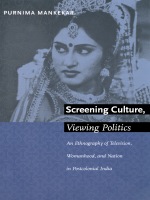
Mankekar examines both “entertainment” narratives and advertisements designed to convey particular ideas about the nation. Organizing her study around the recurring themes in these shows—Indian womanhood, family, community, constructions of historical memory, development, integration, and sometimes violence—Mankekar dissects both the messages televised and her New Delhi subjects’ perceptions of and reactions to these messages. In the process, her ethnographic analysis reveals the texture of these women’s daily lives, social relationships, and everyday practices. Throughout her study, Mankekar remains attentive to the tumultuous historical and political context in the midst of which these programs’ integrationalist messages are transmitted, to the cultural diversity of the viewership, and to her own role as ethnographer. In an enlightening epilogue she describes the effect of satellite television and transnational programming to India in the 1990s.
Through its ethnographic and theoretical richness, Screening Culture, Viewing Politics forces a reexamination of the relationship between mass media, social life, and identity and nation formation in non-Western contexts. As such, it represents a major contribution to a number of fields, including media and communication studies, feminist studies, anthropology, South Asian studies, and cultural studies.
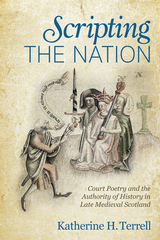
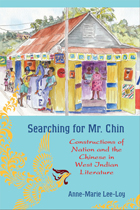
What do twentieth-century fictional images of the Chinese reveal about the construction of nationhood in the former West Indian colonies? In her groundbreaking interdisciplinary work, Searching for Mr. Chin, Anne-Marie Lee-Loy seeks to map and understand a cultural process of identity formation: “Chineseness” in the West Indies.
Reading behind the stereotypical image of the Chinese in the West Indies, she compares fictional representations of Chinese characters in Jamaica, Trinidad, and Guyana to reveal the social and racial hierarchies present in literature by popular authors such as V.S. Naipaul and Samuel Selvon, as well as lesser known writers and hard to access literary texts.
Using historical, discursive, and theoretical frameworks for her literary analysis, Lee-Loy shows how the unstable and ambiguous “belonging” afforded to this “middleman minority” speaks to the ways in which narrative boundaries of the nation are established. In addition to looking at how Chinese have been viewed as “others,” Lee-Loy examines self-representations of “Chineseness” and how they complicate national narratives of belonging.
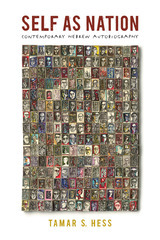
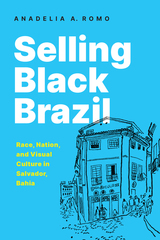
2023 Honorable Mention, Brazil Section Humanities Book Prize, Latin American Studies Association (LASA)
This book explores visual portrayals of blackness in Brazil to reveal the integral role of visual culture in crafting race and nation across Latin America.
In the early twentieth century, Brazil shifted from a nation intent on whitening its population to one billing itself as a racial democracy. Anadelia Romo shows that this shift centered in Salvador, Bahia, where throughout the 1950s, modernist artists and intellectuals forged critical alliances with Afro-Brazilian religious communities of Candomblé to promote their culture and their city. These efforts combined with a growing promotion of tourism to transform what had been one of the busiest slaving depots in the Americas into a popular tourist enclave celebrated for its rich Afro-Brazilian culture. Vibrant illustrations and texts by the likes of Jorge Amado, Pierre Verger, and others contributed to a distinctive iconography of the city, with Afro-Bahians at its center. But these optimistic visions of inclusion, Romo reveals, concealed deep racial inequalities. Illustrating how these visual archetypes laid the foundation for Salvador’s modern racial landscape, this book unveils the ways ethnic and racial populations have been both included and excluded not only in Brazil but in Latin America as a whole.
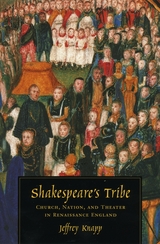
To be sure, Renaissance playwrights rarely sermonized in their plays, which seemed preoccupied with sex, violence, and crime. During a time when acting was regarded as a kind of vice, many theater professionals used their apparent godlessness to advantage, claiming that it enabled them to save wayward souls the church could not otherwise reach. The stage, they argued, made possible an ecumenical ministry, which would help transform Reformation England into a more inclusive Christian society.
Drawing on a variety of little-known as well as celebrated plays, along with a host of other documents from the English Renaissance, Shakespeare's Tribe changes the way we think about Shakespeare and the culture that produced him.
Winner of the Best Book in Literature and Language from the Association of American Publishers' Professional/Scholarly division, the Conference on Christianity and Literature Book Award, and the Roland H. Bainton Prize for Literature from the Sixteenth Century Society and Conference.
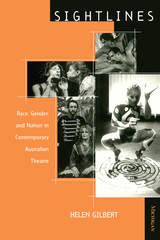
Helen Gilbert discusses an exciting variety of plays, drawing examples from marginalized groups as well as from the theatrical mainstream. While fully engaged with the discourses of contemporary critical thought, Sightlines remains focused on the material stuff of the theater, grounding its discussion in the visual elements of costume, movement, and scenography. And although focused specifically on performance, the author's insistent interest in historical and political contexts also speaks to the broader concerns of cultural studies.
The book's recurrent concern with representations of Aboriginality, particularly in the works of nonindigenous playwrights, draws attention to racial politics as a perennial motif in postcolonial nations. Its illumination of the relationships between patriarchy and imperialism is supported by an extensive discussion of plays by and about women. This nomadic approach marks Sightlines as a groundbreaking study of recent Australian theater, a provocative application of postcolonial theory to the embodied qualities of theatrical representation.
"An impressive and ground-breaking study that provides a coherent postcolonial approach to Australian drama." --Bill Ashcroft, University of New South Wales
"Elegantly written, and always beautifully lucid in its argument. . . . this is a very original work, particularly in its marriage of performance theory and postcolonial analysis." --Deidre Coleman, University of Sydney
Helen Gilbert is Lecturer in Drama and Theatre Studies, University of Queensland, and co-author, with Joanne Tompkins, of Post-Colonial Drama: Theory, Practice, Politics.
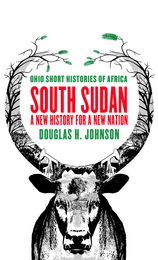
Africa’s newest nation has a long history. Often considered remote and isolated from the rest of Africa, and usually associated with the violence of slavery and civil war, South Sudan has been an arena for a complex mixing of peoples, languages, and beliefs. The nation’s diversity is both its strength and a challenge as its people attempt to overcome the legacy of decades of war to build a new economic, political, and national future.
Most recent studies of South Sudan’s history have a foreshortened sense of the past, focusing on current political issues, the recently ended civil war, or the ongoing conflicts within the country and along its border with Sudan. This brief but substantial overview of South Sudan’s longue durée, by one of the world’s foremost experts on the region, answers the need for a current, accessible book on this important country.
Drawing on recent advances in the archaeology of the Nile Valley, new fieldwork as well as classic ethnography, and local and foreign archives, Johnson recovers South Sudan’s place in African history and challenges the stereotypes imposed on its peoples.
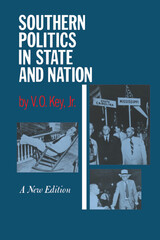
Key's book explains party alignments within states, internal factional competition, and the influence of the South upon Washington. It also probes the nature of the electorate, voting restrictions, and political operating procedures. This reprint of the original edition includes a new introduction by Alexander Heard and a profile of the author by William C. Havard.
"A monumental accomplishment in the field of political investigation."
—Hodding Carter, New York Times
"The raw truth of southern political behavior."
—C. Vann Woodward, Yale Review
"[This book] should be on the 'must' list of any student of American politics."
—Ralph J. Bunche
V.O. Key (1908-1963) taught political science at the University of California, Los Angeles, and at Johns Hopkins, Yale, and Harvard universities. He was president of the American Political Science Association and author of numerous books, including American State Politics: An Introduction (1956); Public Opinion and American Democracy (1961); and The Responsible Electorate (1966).
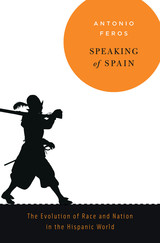
Momentous changes swept Spain in the fifteenth century. A royal marriage united Castile and Aragon, its two largest kingdoms. The last Muslim emirate on the Iberian Peninsula fell to Spanish Catholic armies. And conquests in the Americas were turning Spain into a great empire. Yet few in this period of flourishing Spanish power could define “Spain” concretely, or say with any confidence who were Spaniards and who were not. Speaking of Spain offers an analysis of the cultural and political forces that transformed Spain’s diverse peoples and polities into a unified nation.
Antonio Feros traces evolving ideas of Spanish nationhood and Spanishness in the discourses of educated elites, who debated whether the union of Spain’s kingdoms created a single fatherland (patria) or whether Spain remained a dynastic monarchy comprised of separate nations. If a unified Spain was emerging, was it a pluralistic nation, or did “Spain” represent the imposition of the dominant Castilian culture over the rest? The presence of large communities of individuals with Muslim and Jewish ancestors and the colonization of the New World brought issues of race to the fore as well. A nascent civic concept of Spanish identity clashed with a racialist understanding that Spaniards were necessarily of pure blood and “white,” unlike converted Jews and Muslims, Amerindians, and Africans.
Gradually Spaniards settled the most intractable of these disputes. By the time the liberal Constitution of Cádiz (1812) was ratified, consensus held that almost all people born in Spain’s territories, whatever their ethnicity, were Spanish.
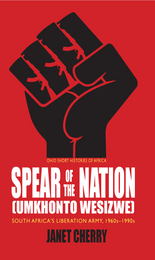
Umkhonto weSizwe, Spear of the Nation, was arguably the last of the great liberation armies of the twentieth century—but it never got to “march triumphant into Pretoria.” MK—as it was known—was the armed wing of the African National Congress, South Africa’s liberation movement, that challenged the South African apartheid government. A small group of revolutionaries committed to the seizure of power, MK discovered its principal members engaged in negotiated settlement with the enemy and was disbanded soon after.
The history of MK is one of paradox and contradiction, of successes and failures. In this short study, which draws widely on the personal experiences of—and commentary by—MK soldiers, Janet Cherry offers a new and nuanced account of the Spear of the Nation. She presents in broad outline the various stages of MK’s thirty-year history, considers the difficult strategic and moral problems the revolutionary army faced, and argues that its operations are likely to be remembered as a just war conducted with considerable restraint.
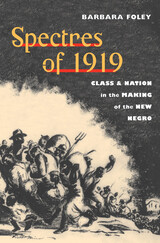
A look at the violent “Red Summer of 1919” and its intersection with the highly politicized New Negro movement and the Harlem Renaissance
With the New Negro movement and the Harlem Renaissance, the 1920s was a landmark decade in African American political and cultural history, characterized by an upsurge in racial awareness and artistic creativity. In Spectres of 1919 Barbara Foley traces the origins of this revolutionary era to the turbulent year 1919, identifying the events and trends in American society that spurred the black community to action and examining the forms that action took as it evolved.
Unlike prior studies of the Harlem Renaissance, which see 1919 as significant mostly because of the geographic migrations of blacks to the North, Spectres of 1919 looks at that year as the political crucible from which the radicalism of the 1920s emerged. Foley draws from a wealth of primary sources, taking a bold new approach to the origins of African American radicalism and adding nuance and complexity to the understanding of a fascinating and vibrant era.
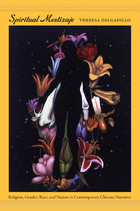

Never before have Americans been so anxious about the future of their society. But rarely has anyone offered a clear statement about why, in a nation so prosperous, free, and stable, we tend to assume that the country is in dire straits and that the government can do little to help. This book is just such a statement, an eloquent assessment of where America stands, how our society has changed in the past half-century, and who or what is responsible for our current frustrations.
Derek Bok examines the nation's progress in five areas that Americans generally consider to be of paramount importance: economic prosperity, quality of life, opportunity, personal security, and societal values. He shows that although we are better off today in most areas than we were in 1960, we have performed poorly overall compared with other leading industrial nations. And when it comes to providing adequate health care at a reasonable cost, educating our young people for high-skilled jobs, alleviating poverty and urban blight, and reducing crime, our record has been dismal. Comparing the United States with other leading industrial nations on more than sixty key indicators, Bok shows that we rank below average in more than two-thirds of the cases and at the bottom in more than half.
What has caused this decline, and what can be done about it? In virtually all important areas of American life, Bok concludes, government policies have played a significant, often decisive role in accounting for our successes as well as our failures. But whereas others call for downsizing the federal government, Bok argues that government is essential to achieving America's goals. In short, Ronald Reagan was only half right. Government is the problem. But it is also the most important part of the solution. By assessing the state of the nation and identifying the reasons for its current condition, this book helps set the agenda for improving America's performance in the future.
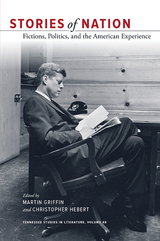
Throughout American history there has been an oddly close relationship between the seductive appeals of narrative fiction and those of political rhetoric and advocacy. The aim of Stories of Nation: Fictions, Politics, and the American Experience is to explore what political narratives and the cultural poetics behind them reveal about the way our personal and intimate lives are deeply connected with the public arena and the political process.
The first section of the book, “The Politics of Fictions,” contains essays focused on works of fiction consciously dramatizing the political realm. The second group of contributions, “The Fictions of Politics,” explores structures and motifs from the narrative arts in discourses of American political life, and the interactions of public institutions and policy with forms of fictional representation, from novels to popular music and TV drama.
The essays presented here broaden the conversation in American literary studies about what constitutes “the political” in literature and culture by reintroducing the dimension of institutional or representative politics. Likewise, Stories of Nation aims to repair the lines of communication between the idea that all fiction is political, and the view that political speech is a subgenre of literature all the more in need of examination in a highly polarized society.
The range of perspectives in Stories of Nation will engage students of literature, popular culture, and politics alike.
MARTIN GRIFFIN is an associate professor in the Department of English at the University of Tennessee. He is the author of Ashes of the Mind: War and Memory in Northern Literature, 1865–1900 (2009) and co-author, with Constance DeVereaux, of Narrative, Identity, and the Map of Cultural Policy: Once Upon a Time in a Globalized World (2013).
CHRISTOPHER HEBERT is an assistant professor in the Department of English at the University of Tennessee and is former senior acquisitions editor at the University of Michigan Press. He is the author of the novels Angels of Detroit (2016) and The Boiling Season (2012).
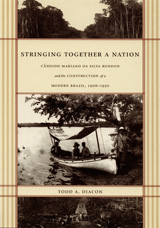
Using an impressive array of archival and documentary sources, Diacon chronicles the Rondon Commission’s arduous construction of telegraph lines across more than eight hundred miles of the Amazon Basin; its exploration, surveying, and mapping of vast areas of northwest Brazil; and its implementation of policies governing relations between the Brazilian state and indigenous groups. He considers the importance of Positivist philosophy to Rondon’s thought, and he highlights the Rondon Commission’s significant public relations work on behalf of nation-building efforts. He reflects on the discussions—both contemporaneous and historiographical—that have made Rondon such a fundamental and controversial figure in Brazilian cultural history.
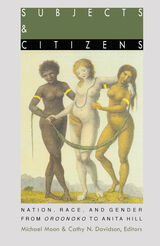
Defining the landscape of the New American literary history, these essays are united by three interrelated concerns: ideas of origin (where does "American literature" begin?), ideas of nation (what does "American literature" mean?), and ideas of race and gender (what does "American literature" include and exclude and how?). Work by writers as diverse as Aphra Behn, James Fenimore Cooper, Edgar Allan Poe, Frances Harper, Harriet Beecher Stowe, Herman Melville, William Faulkner, Harriet Jacobs, Frederick Douglass, Abraham Lincoln, Bharati Mukherjee, Booker T. Washington, Mark Twain, Kate Chopin, Américo Paredes, and Toni Morrison are discussed from several theoretical perspectives, using a variety of methodologies. Issues of the "frontier" and the "border" as well as those of coloniality and postcoloniality are explored. In each case, these essays emphasize the ideological nature of national identity and, more specifically, the centrality of race and gender to our concept of nationhood.
Collected from recent issues of American Literature, with three new essays added, Subjects and Citizens charts the new directions being taken in American literary studies.
Contributors. Daniel Cooper Alarcón, Lori Askeland, Stephanie Athey, Nancy Bentley, Lauren Berlant, Michele A. Birnbaum, Kristin Carter-Sanborn, Russ Castronovo, Joan Dayan, Julie Ellison, Sander L. Gilman, Karla F. C. Holloway, Annette Kolodny, Barbara Ladd, Lora Romero, Ramón Saldívar, Maggie Sale, Siobhan Senier, Timothy Sweet, Maurice Wallace, Elizabeth Young
READERS
Browse our collection.
PUBLISHERS
See BiblioVault's publisher services.
STUDENT SERVICES
Files for college accessibility offices.
UChicago Accessibility Resources
home | accessibility | search | about | contact us
BiblioVault ® 2001 - 2024
The University of Chicago Press









